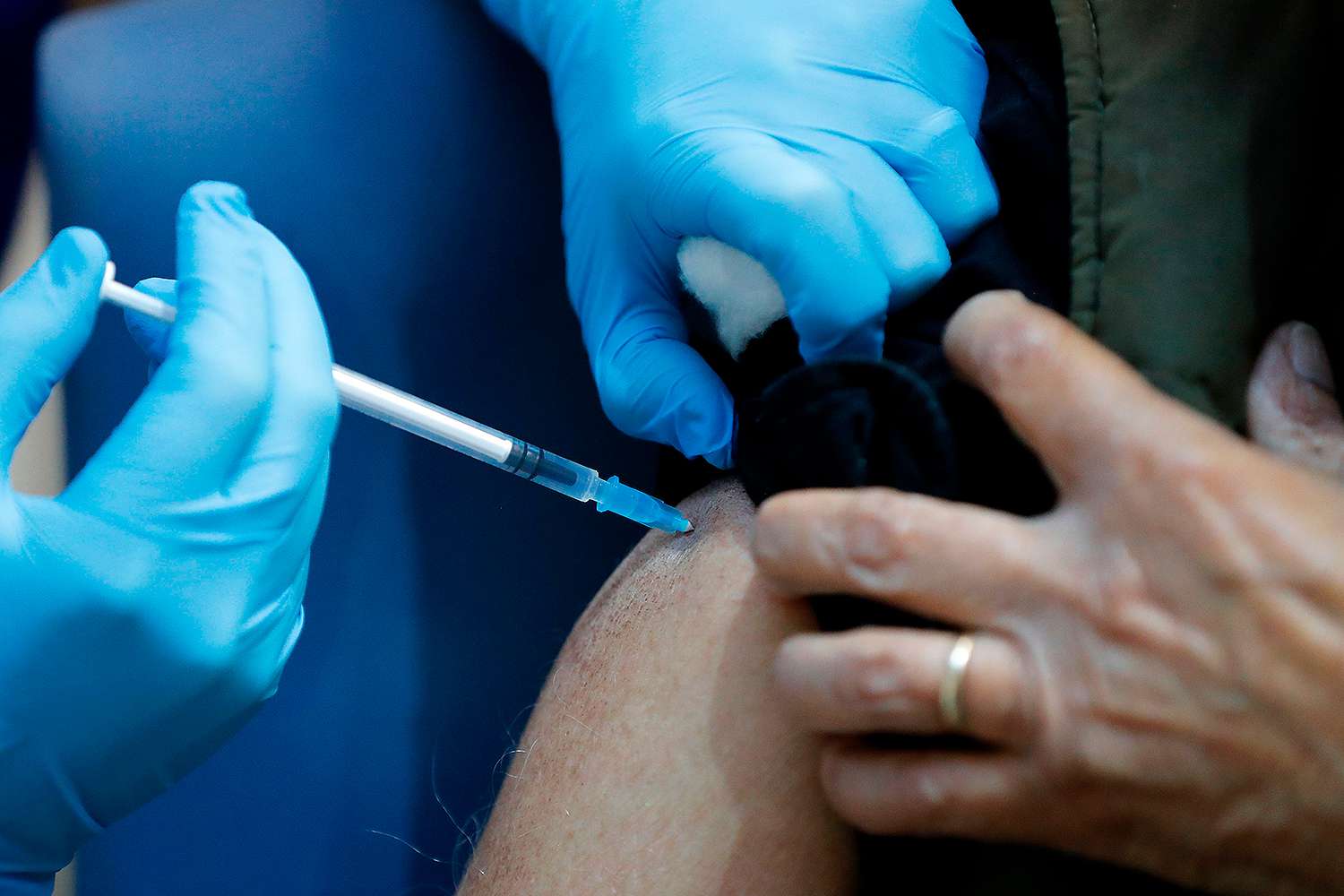COVID Vaccine Side Effect of Swollen Lymph Nodes Can Be Mistaken for Cancer


Although swollen lymph nodes can be a sign of cancer, doctors are cautioning people who have recently received the COVID-19 vaccine not to jump to any conclusions, as it's also a common response to vaccination.
Last month, radiologists at Massachusetts General Hospital noted that although "swelling of lymph nodes in the armpit is a normal response to COVID-19 vaccinations" on mammograms "they can be mistaken for nodes that are swollen because of cancer. "
Armpit swelling was listed as a recognized side effect in both the Moderna and Pfizer-BioNTech vaccines, according to The New York Times. 11.6 percent of patients reported swollen lymph nodes after the first dose of the Moderna vaccine, followed by 16 percent after the second dose, the outlet reported. Meanwhile, less than one percent of patients who had the Pfizer-BioNTech vaccine reported experiencing the side effect.
Lymph node swelling is not a reported side effect of the Johnson & Johnson vaccine, which was authorized for emergency use by the FDA over the weekend.
In order to prevent unnecessary confusion or fear — while still encouraging patients to keep up with their health care needs — radiologists at Massachusetts General Hospital have come up with a set of guidelines, which they published last month.
"We had started to see more patients in our breast imaging clinic with enlarged lymph nodes on mammography, ultrasound, and magnetic resonance imaging. And we noticed they were coming to our clinic after a recent COVID-19 vaccination," Dr. Constance Lehman, director of Breast Imaging at MGH said in a statement. "We talked with our colleagues in primary care and in our breast cancer specialty clinics and realized we needed a clear plan for management."
One important aspect is communication, with radiologists suggesting that patients should be notified via letter that "enlarged lymph nodes are common after the COVID-19 vaccine," and that the lymph nodes on the side where patients received the vaccine will appear larger.
The letter should also communicate that patients should take action if the swelling persists for over six weeks.
Additionally, so long as the patient has no other health concerns, the radiologists do not recommend that any additional imaging or biopsies be performed unless the lymph nodes remain swollen for more than six weeks.
Although health experts stress that urgent imaging should not be delayed due to vaccination, more routine examinations can be delayed for 6 weeks after patients receive their final dose.
"If possible, and when it does not unduly delay care, consider scheduling screening exams prior to the first dose of a COVID-19 vaccination or 4-6 weeks following the second dose of a COVID-19 vaccination," the Society of Breast Imaging wrote in their own list of recommendations.
A recent article published in the journal Radiology also noted that patients should make sure they get both doses in the same arm.
Never miss a story — sign up for PEOPLE's free weekly newsletter to get the biggest news of the week delivered to your inbox every Friday.
While speaking with The New York Times, Dr. Lehman noted that patients currently being treated for cancer in one breast should not get their vaccination on the same side.
"I also want cancer patients to know they can get the vaccine on the opposite side or even the leg to avoid confusion," Lehman added.
As information about the coronavirus pandemic rapidly changes, PEOPLE is committed to providing the most recent data in our coverage. Some of the information in this story may have changed after publication. For the latest on COVID-19, readers are encouraged to use online resources from the CDC, WHO and local public health departments. PEOPLE has partnered with GoFundMe to raise money for the COVID-19 Relief Fund, a GoFundMe.org fundraiser to support everything from frontline responders to families in need, as well as organizations helping communities. For more information or to donate, click here.
Source: Read Full Article